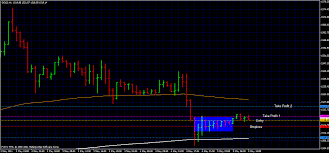The Role of Central Banks in Influencing the Forex Market
Central banks play a pivotal role in shaping the dynamics of the foreign exchange (Forex) market. While traders and investors drive daily transactions, the actions of central banks set the stage for major currency movements. Understanding their influence is critical, particularly in a market valued at over $6.6 trillion in daily trading volume (BIS, 2019). Below, we explore the primary ways central banks impact forex market trends and strategies.
Central Banks and Monetary Policy
One of the core responsibilities of central banks is to implement monetary policy, which directly affects a country’s currency value. Through tools such as interest rate adjustments, quantitative easing (or tightening), and open market operations, central banks guide economic stability. For example, when the Federal Reserve increases interest rates, the USD often strengthens due to the higher return on investments tied to that currency.
Stat Alert: Between 2004 and 2006, the U.S. Federal Reserve raised interest rates 17 times, leading to a notable appreciation of the U.S. dollar globally.
Currency Intervention
Central banks also intervene directly in Forex markets to stabilize or boost their national currencies. This may involve large-scale buying or selling of foreign and domestic currencies. For instance, the Bank of Japan has actively intervened to manage the Japanese yen’s value amidst fluctuating global demand for Japanese exports.
Case Study Spotlight
Take September 2022, when the Bank of Japan spent nearly $20 billion to prevent the yen’s value from falling further against the USD—a stark reminder of how central banks safeguard their economic interests.
Managing Inflation and Economic Growth
Another factor central banks control is inflation. Through manipulation of currency supply or pegging rates to stronger currencies, central banks ensure manageable inflation rates while encouraging sustainable growth. A high-inflation currency tends to see weaker forex performance, making central bank action essential for currency stability.
The Bottom Line
Central banks shape the forex market in both subtle and dramatic ways, influencing currencies based on policy goals, inflation targets, and economic stability efforts. Traders worldwide look to central bank actions as critical signals for market movements. Staying informed about these decisions remains one of the most reliable strategies in navigating the increasingly complex forex landscape.


